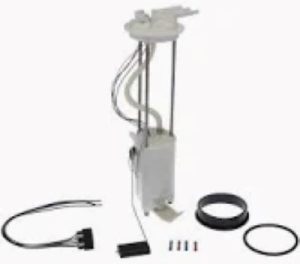These fuel pumps are definitely causing the knocking of the engine, as they do not supply the right amount of fuel to the engine and cause imbalance in the air-fuel mixture ratio. The air-fuel mixture ratio should be maintained at an optimum, usually 14.7:1 for gasoline engines, for economic combustion. When a malfunctioned fuel pump cannot support adequate pressure-usually between 30 and 80 PSI-the amount of fuel reaching the engine might be less than required. This mixture could also be responsible for increasing combustion temperatures and pressure that could lead to pre-ignition or knocking.
A failing fuel pump can also cause erratic fuel delivery. If it should cause uneven fuel flow when the car is under acceleration or under load, this would result in an engine that stutters and knocks. According to studies, a lean air-fuel mixture could increase the knocking severity as much as 40%, particularly in high-performance engines requiring more critical fuel delivery. Prolonged knocking can result in serious damage to the engine, such as wear along the pistons and cylinder head.

Another cause of knocking, and one that is related to fuel pump problems, is contaminated fuel. If the fuel is dirty or filled with impurities, it does not combust smoothly. Fuel pumps are designed to pump clean fuel; with debris inside, they will be working harder and might not provide the needed pressure. This can, of course, cause incomplete combustion, adding in general to knocking and other engine performance problems. Replacement of fuel filters every 20,000 to 30,000 miles averts this problem by ensuring the fuel reaching the pump is clean and free from contaminants.
It can also be caused by electrical problems with the fuel pump. Electrical problems may include a malfunctioning fuel pump relay or poor electrical connections may result in the required voltage not being delivered to the pump, causing inadequate fuel delivery. It is quite important to have a constant power supply to the fuel pump since voltage drops to below 12 volts can lower the efficiency of the pump by up to 15%, providing a lean mixture that encourages knocking.
All these factors have to, therefore, be put into consideration to avoid knocking caused by a Fuel Pump. Regular maintenance involving fuel pressure checks, filter replacements, and electrical integrity goes a long way in ensuring the fuel system works well and at the same time minimizes any chances of knocking for continued performance.
